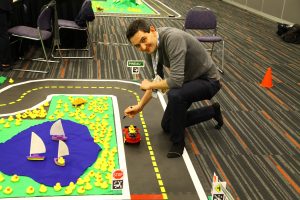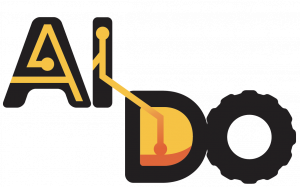The AI Driving Olympics (AI-DO) is back!
We are excited to announce the launch of the AI-DO 3, which will culminate in a live competition event to be held at NeurIPS this Dec. 13-14.
The AI-DO is a global robotics competition that comprises a series of events based on autonomous driving. This year there are three events, urban (Duckietown), advanced perception (nuScenes), and racing (AWS Deepracer). The objective of the AI-DO is to engage people from around the world in friendly competition, while simultaneously benchmarking and advancing the field of robotics and AI.
Check out our official press release.

- Learn more about the AI-DO competition here.






















































